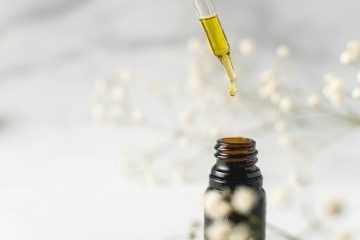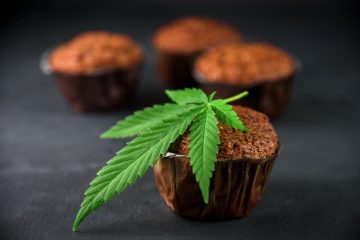If you are interested in purchasing CBD oil, you may be wondering if it is safe to freeze it. While this method will not affect the quality or potency of the product, it will change the consistency and viscosity. It also slows down the natural process of decarboxylation, which is important because it prevents bacterial reactions.
Cannabinoids travel through the body better when they’re attached to fats
Cannabinoids are a group of chemicals that are derived from the Cannabis plant. They are responsible for many effects, including anti-inflammatory properties and analgesia.
Although cannabinoids travel through the body in a fairly straightforward way, how they interact with your kidneys and other organs is much less clear. For this reason, the endocannabinoid system has been extensively studied. It has been shown to play an important role in regulating blood pressure and glomerular filtration rate.
The endocannabinoid system is also known to influence immune function. This may be why some people who consume cannabis regularly experience immunomodulating effects. Similarly, exercise has been linked to endocannabinoid increases.
To reach the body, cannabinoids are usually transported in tiny oil particles suspended in a liquid. These micelles are often accompanied by lecithin, which serves as an emulsifier to help keep the ingredients together and spread evenly.
Cocoa butter is another good vehicle for cannabinoids. Their chemical structure allows them to be absorbed by the cells lining the gut. However, coconut oil has shorter triglycerides, which may make them less suitable for transporting larger molecules to the gut wall.
In general, cannabinoids have a relatively long half-life. For heavy users, this can last for up to a month. But, for infrequent users, this half-life can be as short as a day or two.
Using cannabinoids to treat a medical condition is a common approach. Some studies have found that cannabinoids reduce inflammation, pain, anxiety, and stress.
Reduces potency loss to approximately 4%
The science behind freezing cannabis oil is pretty simple. When stored properly, it’s not only a great way to store marijuana for long periods of time, but it can also help reduce potency loss. In fact, freeze-drying may be replacing hang drying as the preferred method of storing cannabis in the near future.
One of the most important steps in freezing marijuana is to keep it cool. Temperatures of 200 degF or lower are recommended. This will ensure that THC is not completely destroyed, and it will also activate acidic cannabinoids. However, you’ll want to avoid storing your jar of cannabis in a room that’s too cold.
For the best results, it’s also a good idea to avoid using an ice cube tray. Instead, use a glass or silicone container to hold your infused oil. Store the jar in a cool place, and it’s likely to last for a few months.
It’s also a good idea to put the jar in a dark area. Even if you’re using a plastic bottle, you’ll want to cover it with wax paper to prevent any residue from forming.
To determine the proper dosage for your needs, it’s a good idea to weigh your flower and calculate how much of it is actually needed. Once you’ve figured out the correct amount of oil, you can dilute it after infusing it.
Another way to measure the quality of an infusion is to place it in a dry spoon and then roll it around in a jar. Doing this will make it easier to see how well the herb absorbs the oil.
Slows down the natural process of decarboxylation
When you’re making edibles, it’s important to decarboxylate your cannabis before you infuse it into oils. You can do this by either baking the buds in an oven or a mason jar.
The time it takes for the decarboxylation to complete will vary depending on the temperature and the type of cannabis. It’s best to avoid overheating the weed and burning it. If the temperature is too high, you can also burn off the valuable terpenes in the herb.
Generally, it will take about 45 minutes to an hour to decarboxylate a mason jar. Be sure to shake the jar regularly to ensure that it doesn’t sit still.
If you’re looking for the fastest method, the oven is your best bet. Depending on the size and type of your weed, it will take anywhere from 20 to 30 minutes to bake.
For the second fastest method, you can sous vide. This method is almost foolproof. However, you’ll need to pay a pretty penny for an immersion circulator.
In addition, if you’re using a mason jar, you’ll need to use a baking tray and kitchen towel to keep the jar from sliding and burning. You’ll also need oven gloves to protect your hands.
As with any other cooking, you’ll want to maintain a low heat. You don’t want to overheat the weed or the oil you’re infusing.
Another method is to grind the weed. Using a food processor, you can make the weed even in consistency.
Can affect consistency and viscosity
In order to produce the perfect cannabis oil, the consistency and viscosity must be right. This will determine whether the final product is safe for use, how effective it is, and how its appearance will affect your overall experience. Luckily, there are plenty of ways to control the viscosity of your cannabis oil.
One way to do this is with a thickening agent. These additives can help to make your oil more fluid, which will enhance its effectiveness. They can also help to add additional flavor. Another option is to add terpenes. Terpenes are a group of plant-derived chemicals that can add flavor and potency to a product. Using a terpene-based thickener can help you achieve the perfect oil.
When using a thickening agent, it is important to know how it will affect your product. If you use too much, your oil will be too runny. Likewise, using too little can reduce the effect of the oil.
In addition to the type of thickening agent you use, there are a few other factors that can impact the viscosity of your product. You can also add diluents to thin your oil. Choosing a diluent that is too thick can result in an ineffective product.
The amount of terpenes in your oil is also important. Terpenes are a type of polyphenol that can help increase the effects of your cannabis. However, high levels of terpenes can lead to adverse effects.
Expired CBD oil is a sign of a bad product
Expired CBD oil has an unpleasant taste and smell. The scent is usually earthy and has a grassy flavor. It is also usually very thick. This is a sign that the product has gone off and is degrading.
Expired CBD oil is not a good idea, as it can cause side effects. If you have noticed any changes in the taste or scent of your CBD, you should seek medical attention.
While the expiration date isn’t always a reliable indicator, you can check the bottle to see if it is past the prime. You can also try sniffing it.
Expired CBD is a waste of money. Your money has gone down the drain and you will not feel the full effects of the potency.
Fortunately, it is possible to extend the shelf life of your CBD. This is important to keep the potency at its peak. When stored properly, the CBD will last for one to two years.
When it comes to shelf life, there are many factors to consider. The ingredients in the CBD and the formulation of the product can play a part. A dark container will minimise the effect of light and heat. Some essential oils are also known to add to the shelf life of the CBD.
Another factor to consider is the quality of the CBD. Poorly-processed hemp may contain chemicals that are harmful to your health.


